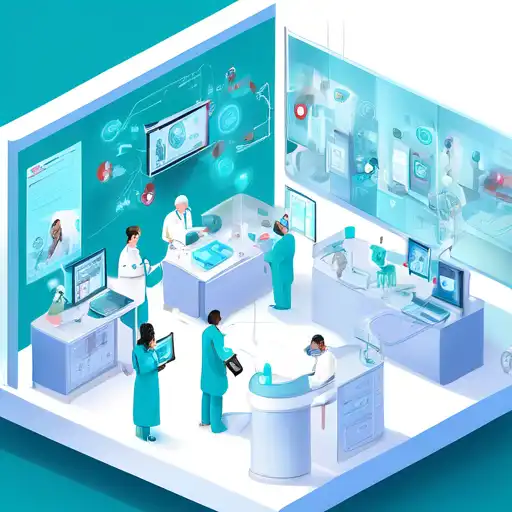Introduction to IoT in Healthcare
The Internet of Things (IoT) is revolutionizing various sectors, and healthcare is no exception. By integrating IoT devices into medical services, healthcare providers can offer more personalized, efficient, and proactive care to patients. This article explores the transformative impact of IoT on healthcare services.
Enhanced Patient Monitoring
One of the most significant benefits of IoT in healthcare is the ability to monitor patients in real-time. Wearable devices and sensors can track vital signs such as heart rate, blood pressure, and glucose levels, transmitting this data directly to healthcare providers. This continuous monitoring allows for early detection of potential health issues, reducing hospital readmissions and improving patient outcomes.
Improved Medication Management
IoT devices are also transforming medication management. Smart pill dispensers can remind patients to take their medication and alert healthcare providers if a dose is missed. This technology is particularly beneficial for elderly patients or those with chronic conditions, ensuring adherence to treatment plans and reducing the risk of complications.
Streamlined Hospital Operations
Beyond patient care, IoT is optimizing hospital operations. Asset tracking systems can locate medical equipment quickly, reducing downtime and improving efficiency. Additionally, IoT-enabled environmental monitoring can ensure optimal conditions in sensitive areas like operating rooms and laboratories, enhancing safety and compliance.
Challenges and Considerations
Despite its benefits, the integration of IoT in healthcare comes with challenges. Data security and privacy are paramount concerns, as the transmission of sensitive health information must be protected against breaches. Furthermore, the high cost of IoT devices and the need for robust infrastructure can be barriers to adoption for some healthcare providers.
The Future of IoT in Healthcare
Looking ahead, the potential of IoT in healthcare is boundless. Advances in artificial intelligence and machine learning will further enhance the capabilities of IoT devices, enabling more accurate diagnostics and personalized treatment plans. As technology continues to evolve, the integration of IoT in healthcare will undoubtedly lead to more innovative and effective medical services.
In conclusion, IoT is playing a pivotal role in transforming healthcare services. From real-time patient monitoring to streamlined hospital operations, the benefits are clear. However, addressing challenges such as data security and cost will be crucial for widespread adoption. The future of healthcare is digital, and IoT is at the forefront of this revolution.
